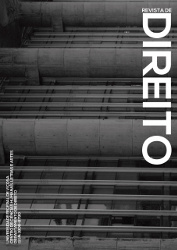O Estado Democrático de Direito e a participação do juiz na comunidade
DOI:
https://doi.org/10.32361/2021130312239Palavras-chave:
Juiz, Comunidade, Imparcialidade, Neutralidade, AçãoResumo
Com o objetivo de desenvolver a temática do necessário perfil dos magistrados dentro do Estado Democrático de Direito, discorre-se – por exposição histórica, revisão de literatura e exemplos práticos –, sobre a participação do juiz na comunidade como coerente com os pressupostos desse modelo de Estado. Como não mais se correlacionam os conceitos de imparcialidade e de neutralidade, o juiz deve, de fato, ser imparcial (noção processual), mas não neutro (noção valorativa). Conclui-se que os valores constitucionais impõem tal postura, contribuindo para a consolidação de tais valores. Proporcionando um maior conhecimento das peculiaridades da comunidade em que inserido o magistrado, a sua participação constitui-se em um meio ao exercício da boa jurisdição.
Downloads
Referências
BRASIL. Lei nº 13.105, de 16 de março de 2015. Institui o Código de Processo Civil. Brasília, DF: Presidência da República, [2018]. Disponível em: http://www.planalto.gov.br/ccivil_03/_ato2015-2018/2015/lei/l13105.htm. Acesso em: 13 mai. 2020.
BRASIL. Constituição da República Federativa do Brasil de 1988. Brasília, DF: Presidência da República, [2018]. Disponível em: http://www.planalto.gov.br/ccivil_03/constituicao/constituicao.htm. Acesso em: 13 mai. 2020.
CINTRA, Antônio Carlos de Araújo; GRINOVER, Ada Pellegrini; DINAMARCO, Cândido Rangel. Teoria geral do processo. 20. ed. São Paulo: Malheiros, 2004.
DINAMARCO, Cândido Rangel. A instrumentalidade do processo. 8. ed. São Paulo: Malheiros, 2000.
DO SUL, Rio Grande. Tribunal de justiça do Rio Grande do Sul. Núcleo permanente de métodos consensuais de solução de conflitos. Disponível em: https://www.tjrs.jus.br/site/processos/conciliacao/nucleo.html?print=true&2. Acesso em: 13 mai. 2020.
FARIA, José Eduardo. As transformações do Judiciário em face de suas responsabilidades sociais. Direitos humanos, direitos sociais e justiça. São Paulo, Malheiros, 2005, p. 52-67.
FREITAS, Vladimir Passos de. Responsabilidade social do juiz e do Judiciário. Disponível em: http://www.conjur.com.br/2009-set-13/segunda-leitura-responsabilidade-social-juiz-judiciario. Acesso em: 13 mai. 2020.
GADAMER, Hans-Georg. Verdade e Método: traços fundamentais de uma hermenêutica filosófica. 4ª ed., Petrópolis: Vozes, 2002.
MOREIRA, José Carlos Barbosa. Reflexões sobre a imparcialidade do juiz. In: Temas de direito processual: sétima série. São Paulo: Saraiva, 2001.
NALINI, José Renato. A rebelião da toga. Campinas: Millenium, 2006.
PAMPLONA FILHO, Rodolfo. O mito da neutralidade do juiz como elemento de seu papel social. Disponível em: https://jus.com.br/artigos/2052/o-mito-da-neutralidade-do-juiz-como-elemento-de-seu-papel-social. Acesso: em 13 mai. 2020.
REALE, Miguel. Filosofia do Direito. São Paulo: Saraiva, 1983.
STRECK, Lênio Luiz; BOLZAN DE MORAIS, José Luis. Ciência Política e Teoria do Estado. 5. ed. Porto Alegre: Livraria do Advogado, 2006.
VIEIRA, José Luiz Leal. Um Novo Desafio para o Judiciário: o Juiz Líder. In Coleção Administração Judiciária. Porto Alegre: Tribunal de Justiça do Estado do Rio Grande do Sul, Departamento de Artes Gráficas, 2009.
Downloads
Publicado
Como Citar
Edição
Seção
Licença
Copyright (c) 2021 Revista de Direito

Este trabalho está licenciado sob uma licença Creative Commons Attribution-NonCommercial 4.0 International License.
O trabalho publicado é de inteira responsabilidade dos autores, cabendo à Revista de Direito apenas a sua avaliação, na qualidade de veículo de publicação científica.
Após a publicação, os autores cedem os direitos autorais, que passam a ser de propriedade da Revista de Direito.
A Revista de Direito não se responsabiliza por eventuais violações à Lei nº 9.610/1998, Lei de Direito Autoral.















